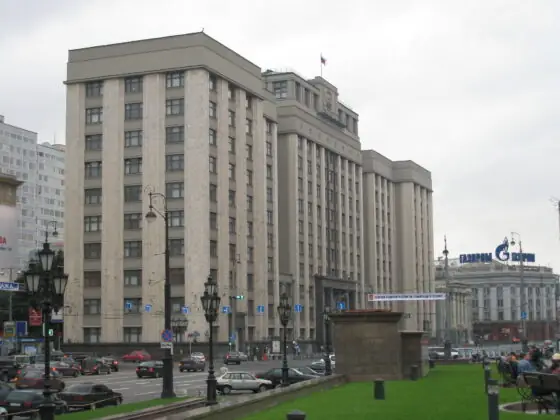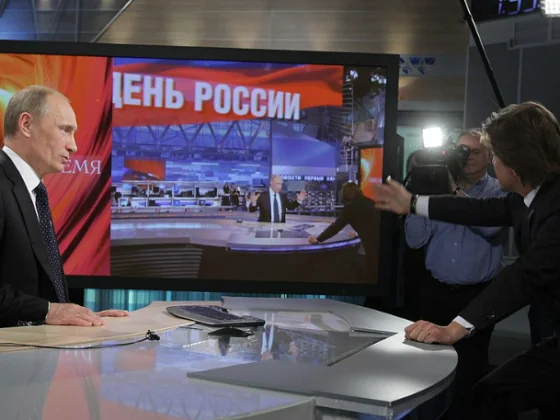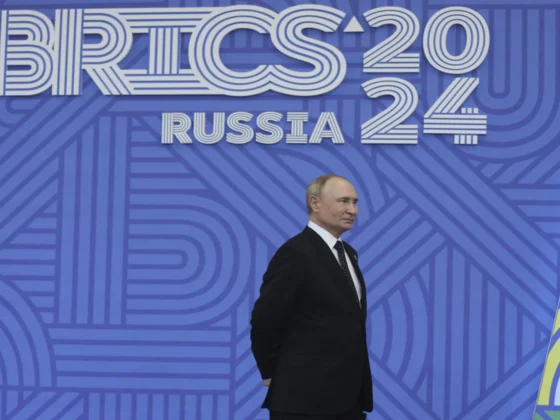(PONARS Eurasia Policy Memo) At first glance, Ukraine’s recent presidential election further confirmed the dramatic decrease of Russian influence in Ukraine. Not a single candidate based his or her campaign on the promotion of an open rapprochement with Russia and neither of the two candidates labeled as “pro-Russian” reached the second round. Still, the election illustrated the decline of the “pro- vs. anti-Russian” divide that has shaped Ukrainian politics since 1991. New President Volodymyr Zelensky won a majority of votes almost everywhere in Ukraine (except in the Lviv region) but the election also highlighted that the political mood relating to the “Russian question” was quite different from the one that surrounded the 2014 presidential election. First, the election campaign demonstrated that anti-Russian and patriotic rhetoric may have turned out to be less rewarding than it was in 2014. Second, the political forces traditionally labeled as “pro-Russian” achieved surprisingly good results.
A new chapter in Ukraine’s relations with Russia is starting to open, although the country’s evolution for years to come will mostly depend on the outcomes of the parliamentary election set for October 2019. Looking back at the normalization of Georgian-Russian relations that occurred after the 2012 political shift in Tbilisi could be a good indicator as to what this new chapter might look like. Such a normalization gives impetus to the ongoing negotiation on the resolution of the Donbas conflict, one of the top campaign promises of Zelensky, and one that also aligns with Russia’s strategic goals in Ukraine. But while the new political landscape in Kyiv seems more propitious to a restart in the bilateral relationship, any substantial new developments in the relationship will mostly depend on how ready Moscow is to deal with the new Ukrainian authorities.
Bilateral Relations Five Years After Crisis Onset: Russia’s Global Loss of Influence
Ukraine’s recent presidential election was held in a context characterized by continued loss of Russian influence in the country. Five years after the Crimea annexation and the launch of armed conflict in Donbas, Russian territorial gains at the expense of Ukraine are by far still being surpassed by Russia’s loss of influence in Ukraine. Over the last couple of years, most of the tools Moscow used to rely on to maintain its grip over its neighbor have been dismantled.
In the political sphere, this loss of influence is twofold. First, since the beginning of the crisis, the two main political parties promoting closer ties with Russia and other post-Soviet countries over integration with the West have suffered an unprecedented backlash. While the Communist Party was de facto dissolved in 2015, initially for promoting separatism and then under the decommunization law, the Opposition Bloc is far from being the mighty political machine that its predecessor Party of Regions was.
In every Ukrainian presidential election held since 1991, a candidate promoting enhanced political, economic, and security integration with Russia and the post-Soviet region managed at least to reach the second round and sometimes to win. This was not the case in 2014 when Petro Poroshenko won in the first round and in 2019, when the most successful pro-Russian candidate, Yuriy Boyko, received 11.5 percent of the vote and did not access the second round. Second, this loss of influence is also suggested by the evolution of what being pro-Russian meant before the crisis and what it actually means today.
Before 2014, being labeled as “pro-Russian” signified, on the international stage, promoting Ukraine’s integration or at least closer cooperation with the Eurasian Economic Union (EEU) and other Russia-led regional organizations. On the national stage it meant granting the Russian language official status in Ukraine. Nowadays, it mostly consists of promoting, in rather vague terms, the resumption of relations with Russia in order to achieve peace in Donbas, as proposed in Boykos’s political program. The evolution of Ukrainians’ views about their country’s geopolitical future echoes this decline of Russian political influence. In 2014, around 40 percent of the Ukrainian population backed the idea of integration with the EEU.[1] Five years later, this view was supported by 23 percent of the population.
Russia’s loss of influence in Ukraine is also about the economy. From 2014 to 2018, the share of Russia in Ukraine’s trade turnover halved, falling from 21 to 11 percent, while at the same time the EU consolidated its position as Ukraine’s main trading partner, accounting for 42 percent of its total trade turnover in 2018. Both short-term causes, such as the introduction of mutual economic sanctions, as well as structural causes, such as the growing trade turnover between Ukraine and the EU that increased after the DCFTA entered into force in June 2014, explain this shift. In addition to this general decline, Russia also partially lost some of its traditional economic means of influence over Ukraine. With the introduction of the reserve-flows mechanism in 2014, one of the primary economic tools of coercion used time and again by Russia against Ukraine lost some of its relevance.
The suspension of bilateral cooperation in the defense industry also dealt an important blow to the Russian economy and, therefore, political influence over Ukraine. It mostly affected the economic activity of cities hosting large facilities of the Ukrainian military-industrial complex that are mainly located in the southern and eastern regions and which remained, until 2014, important strongholds of the pro-Russian political establishment. Even though this phenomenon has many causes, it seems noteworthy that the undisputed control by the political establishment over these cities is now being challenged. One example is the defeat of the Opposition Bloc in the southern town of Mykolaiv during the 2015 municipal elections (Oleksandr Senkevich, from Self Reliance, won the election).
Finally, the crisis also contributed to dramatically lessen the influence Russia previously enjoyed in Ukraine in what can be broadly defined as the cultural sphere. Many measures aimed at reducing access to the traditional tools of Russian propaganda and/or soft power have been implemented, among them the banning of several Russian media and social networks that used to be very popular in Ukraine prior to the crisis. In early 2014, around 30 percent of the Ukrainian population was mostly relying on Russian TV as its main source of information. According to a recent survey conducted by the Kyiv Institute of International Sociology, this rate fell below 5 percent in 2018.
On the other hand, both an unprecedented questioning of Ukraine’s Soviet past and the intense promotion of the Ukrainian language and identity occurred during the Poroshenko presidency. Assessing the long-standing effect of this policy sounds premature. Nevertheless, since the beginning of the crisis, a breach transpired in the almost-unchallenged-since-1991 Russian cultural influence in Ukraine. While Russia might recapture a part of its lost influence over Ukraine, it will be impossible for it to recover to its pre-2014 level of influence.
The Election Suggests the Strong Resilience of the Pro-Russian Vector in Ukraine
Both by its scope and by being nationwide, Zelensky’s victory represents an intriguing move in Ukrainian politics. By winning in nearly every part of the country, Zelensky managed to gather a traditionally divided Ukrainian electorate, but without the sharp consolidating factor that the conflict in its active phase presented in the prior presidential election. However, the very fact that the southern and eastern regions experienced among the highest turnout, and that Zelensky received his strongest support from these two regions, must not be neglected.[2] These results fit with his electoral strategy, which was to engage the Ukrainian population as a whole while specifically targeting the population in the southeast, for instance by using the Russian language rather than Ukrainian or by making inconclusive comments about his intention to slow down the pace of the “Ukrainization policy” pursued by Poroshenko.
As such, three observations can be drawn from the election outcomes. First, Zelensky’s victory can partly be interpreted as a political resurgence of the electorate from the southeast that traditionally favored pro-Russian political forces and that appeared deprived of any representation in the last 2014 presidential election because of the Party of Regions’ disarray. Second, the recent election showed that the southeast electorate, sidelined in 2014, was the main target of this election, which suggests an important shift from the 2014 election. Third, despite declining, the west/southeast political divides still exist, as confirmed by a quick look at the performance of the two candidates in the second round. The next parliamentary election will give useful indications about the extent to which the political divide has actually declined.
Patriotism Does Not Grant Popularity Any Longer
Many factors explain Poroshenko’s defeat. In addition to long-term grievances such as his inability to end the war or improve the living conditions of the population, corruption scandals affecting his close circles were revealed right before the first round, which contributed to his debacle.
Furthermore, his patriotic-centered electoral strategy proved ineffective, if not counterproductive. Poroshenko’s campaign was mostly based on the manifesto of “Army, Language, Faith”—the three concepts that have been at the core of his tenure. As the commander of the armed forces, Poroshenko played a central role in promoting “Ukrainization policies” and he managed to secure the independence of the Ukrainian Orthodox Church. During the campaign, the incumbent also portrayed himself as the only candidate able to deal with Russian President Vladimir Putin. As polls show, Ukrainians rank the resolution of the conflict in Donbas as a top priority. However, voters paid much less attention to the issues linked to Poroshenko’s three campaign pillars. Contrary to the 2014 situation, it turned out that patriotic and anti-Russian rhetoric did not play a mobilizing role any longer among Ukrainians, despite the continuing conflict in Donbas.
A Decent Performance by the Two “Pro-Russian” Candidates
The recent presidential race demonstrated the surprisingly good performance of the “pro-Russian” forces. Yuri Boyko and Oleksander Vilkul, the two candidates representing what remains of the Ukrainian pro-Russian political establishment, obtained together about 17 percent of the vote, as compared with the 12 percent collectively obtained in 2014 by the four “pro-Russian” candidates. Their recent performance is all the more remarkable bearing in mind that the largest part of the Crimean and separatist-controlled Donbas population, which represents the most pro-Russian electorate, did not go to vote. Had the pro-Russian opposition presented a united candidate, he or she would have probably reached the second round. According to several opinion polls, this trend will likely continue during the next parliamentary elections where the Opposition Bloc is expected to receive about 16 percent of the vote and, thus, become the second largest fraction in the parliament.
Likely: Pragmatically Guided Improvements to Ukraine-Russia Relations
Confirming that a solution in Donbas remains a top priority for the Ukrainian electorate, the presidential election indicates that the hardline patriotism-political perspective was not at the forefront of issues and sheds light on the resurgence of the “pro-Russian” political forces. For Moscow, the main tactical objective, Poroshenko’s defeat, was achieved. The Kremlin now has better incentives to push toward its strategic goal vis-a-vis Kyiv, which is the reintegration of Donbas with Ukraine.
In that context, evolutions in the current paradigm of Ukraine-Russia relations are likely to occur. They could partially look like what happened in Georgia after the 2012 political upheaval gave power to the Georgian Dream party. Along with pursuing a foreign policy based on two main objectives—the restoration of territorial integrity and Euro-Atlantic integration—the new Georgian authorities that came to power promoted a normalization of relations with Russia. More than ten years after the Five-Day War, the situation between Tbilisi and Moscow reached a disconcerting paradox. While about 20 percent of Georgian territory is under Russian occupation and diplomatic relations are still suspended, the new approach promoted by Tbilisi led to an extensive normalization of bilateral relations on a broad range of issues. This resulted in a remarkable growth in trade between the two countries, the resumption of direct flights, the opening of several border crossing points, the lifting or easing of the visa regime, the influx of Russian investment, and more Russian tourists visiting Georgia.
The prospects of a renewal in Ukrainian-Russian relations partially following this “Georgian model” are plausible, especially since Russia currently enjoys in Ukraine a far better positive image than it had in Georgia. In addition to the good performances of the “pro-Russian” political parties, which are likely to be repeated in the next parliamentary elections, 57 percent of Ukrainians are positively or very positively inclined toward Russia. A pragmatically based reset in the Ukraine-Russia relationship could also improve the Donbas conflict resolution process. In Georgia, despite the normalization, no progress has been made over Abkhazia and South Ossetia for the main reason that Moscow, after having recognized the independence of these two breakaways regions, does not consider this conflict as an object of negotiations any longer. On the contrary, the reintegration of Donbas into Ukraine remains a Moscow objective toward that region.
The various factors could pave the way to a new chapter in Russian-Ukrainian relations—one that partially echoes what happened between Moscow and Tbilisi from 2012. Being likely, this movement will be determined by three main parameters: 1) the results of the next parliamentary elections, 2) Kyiv’s abilities to implement decisions against domestic non-state actors (such as veterans’ groups that might try to oppose any move that could be considered as a concession to Russia), and 3) Moscow’s attitude toward Zelensky. Ukraine’s non-state actors already demonstrated their ability to influence Kyiv’s decisions when in January 2017 groups imposed an economic blockade of the separatist-held Donbas (a situation later officialized by the Ukrainian authorities). Regarding Russia, less than a month after Zelensky’s victory, Moscow sent mixed messages. Several comments by top Russian officials suggested a certain optimism. At the same time, however, Russia’s decision to ban the export of petroleum products to Ukraine and to ease the process by which Donbas separatists receive Russian citizenship illustrates that, regardless of political changes in Ukraine, the Kremlin adheres to hardline policies that are based on the following paradigm: to expect Kyiv to make concessions rather than to appear ready to do so.
Emmanuel Dreyfus is a Visiting Fellow at the Institute for European, Russian and Eurasian Studies at the George Washington University.
[PDF]
[1] See: Olexiy Haran and Mariia Zolkina, “The Demise of Ukraine’s ‘Eurasian Vector’ and the Rise of Pro-NATO Sentiment,” PONARS Eurasia Policy Memo No. 458, February 2017.
[2] Around 85 percent in the south and 88 percent in the east. For further details, see: “Ukraine votes in second round of presidential elections,” Euromaidan Press live blog, April 21, 2019.











